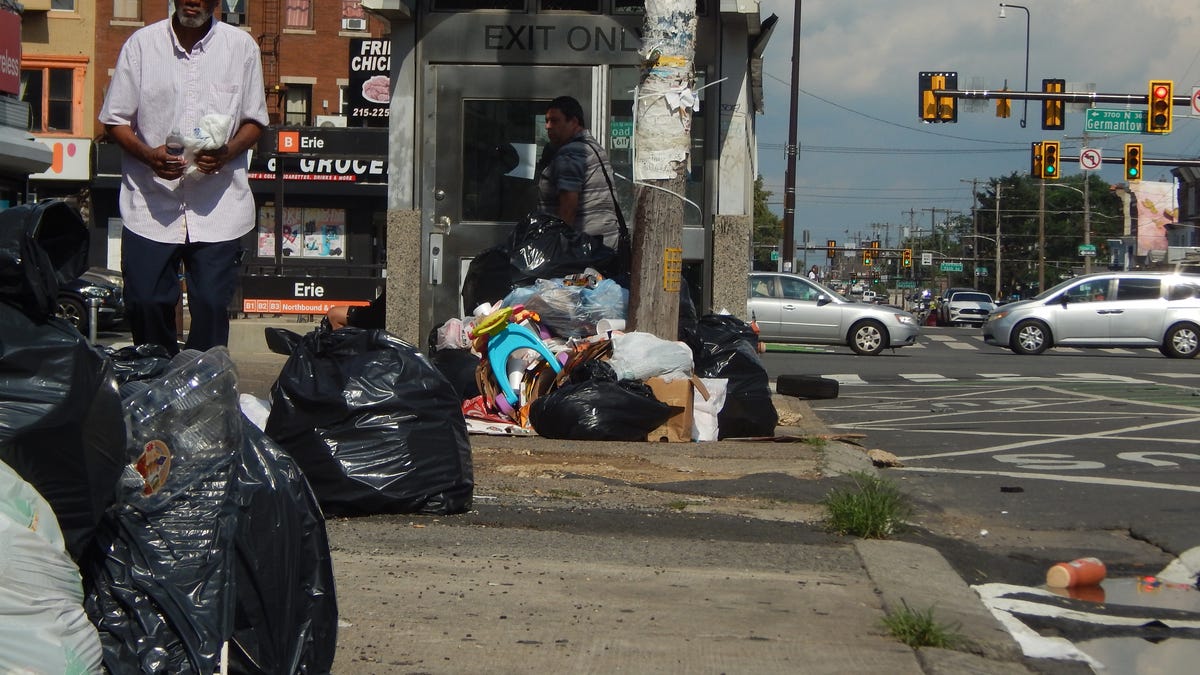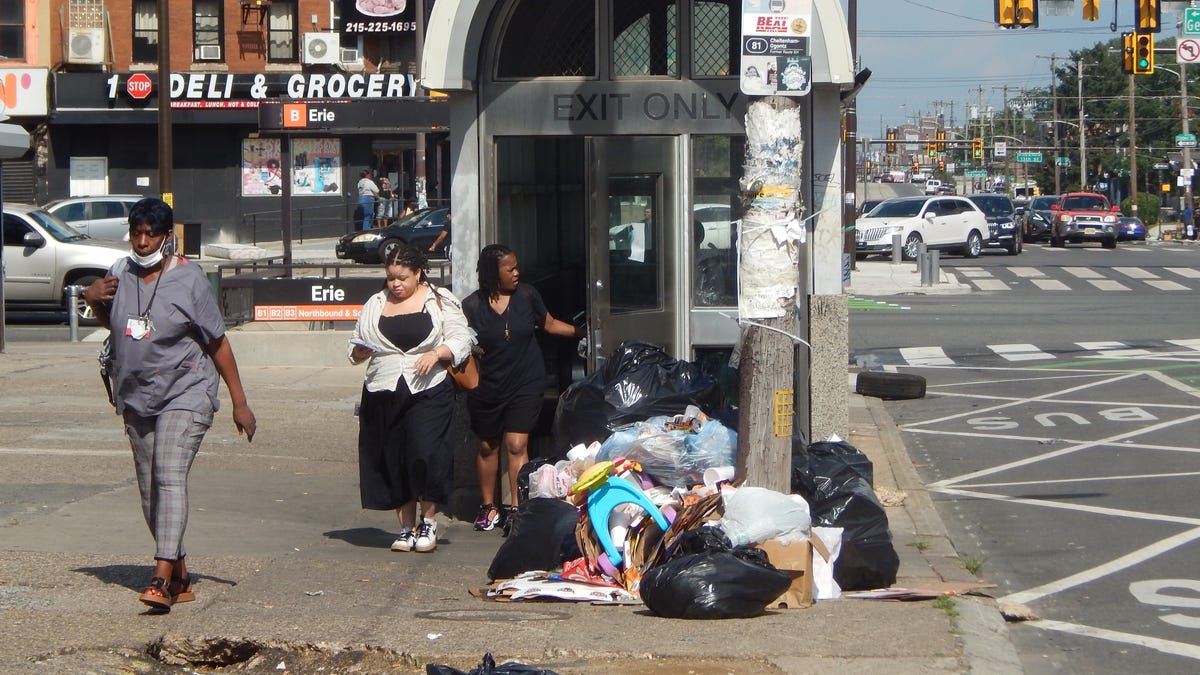Newsom signs ‘the most consequential housing reform in modern history’
Gov. Gavin Newsom has signed two housing bills into law, aimed at making it easier and faster to build new housing by reducing environmental regulations.
Fox – Ktvu
California lawmakers have approved two new bills that are expected to lead to a significant overhaul of the state’s landmark environmental protection law and jump-start the stagnated housing market that has long stymied residents and would-be employers.
The major changes to the California Environmental Quality Act, known as CEQA, were attached to two bills in a larger $321 billion state budget bill that eventually passed with ease. California Gov. Gavin Newsom signed the legislation on June 30, which received rare bipartisan support.
“This is the most consequential housing reform in modern history in the state of California. Long overdue? Absolutely,” Newsom said at a news conference as he signed the legislation.
Supporters said the reforms to CEQA’s strenuous review process will help improve the state’s ongoing housing shortage and chronic homelessness crisis. Some environmental advocates call the move back-door dealmaking.
Assembly Bill 130, created by California Assemblymember Buffy Wicks, D-Oakland, exempts most urban housing projects from environmental review. Another bill, Senate Bill 131, by California state Sen. Scott Wiener, D-San Francisco, waives the environmental restrictions for other buildings, including health clinics, child care, and food banks.
Newsom on legislation: ‘Too urgent, too important’
California has long been considered a national pioneer for environmental action, as changes to its signature impact review law come at a time that may change the landscape within the nation’s most populous state.
California is estimated to need 3.5 million more housing units than it has. The shortage is one reason people and businesses have fled as housing in popular cities like San Francisco and Los Angeles is unaffordable to the vast majority who want to live and work there.
The changes are meant to jump-start housing construction, which has often been strangled by the use of the state’s signature 1970 environmental law. Critics say the law is used by groups whose goal is more intent on stopping buildings than sparing the environment.
The bills became law after Newsom threatened to reject the state budget passed last week unless there was an overhaul of CEQA, which requires strict reviews of any new development built and its impact on the environment. That process could take months to years, adding expense and uncertainty to projects.
For years, these environmental impact studies have often been known to delay and even halt new development due to CEQA, regarded as among the strictest laws of its kind in the United States. During a news conference after signing the laws, Newsom said the matter was “too urgent, too important, to allow the process to unfold as it has for the last generation, invariably falling prey to all kinds of pratfall.”
Behind the bills
Under the two new laws, nine types of projects are exempted from environmental impact reviews. They include child care centers, health clinics, food banks, as well as farmworker housing, broadband, wildfire prevention, water infrastructure, public parks or trails, and advanced manufacturing.
“It’s aligned with what I know about the history and the reform measures,” Mark Baldassare, survey director for the Public Policy Institute of California, a nonpartisan research organization, told USA TODAY. “We’ll see what takes place. Stay tuned.”
Possible changes have been under intense debate for at least a decade, Baldassare said. Newsom and other state legislators are now aware that voters nationwide during last year’s elections blamed politicians, especially Democrats, for not curbing rising cost-of-living prices, Baldassare added.
Baldassare said PPIC statewide polling of California voters in both 2023 and June 2025 revealed that the cost of living and affordable housing are their top two concerns, calling last year’s election “a wake-up call.”
“The idea of reforming CEQA has been around for a long time,” Baldassare said. “Our polling indicated that despite the state’s strong environmental attributes, they were supportive of reforming CEQA across party lines, and that doesn’t happen too often, especially given today’s polarization.”
California’s environmental law
The 54-year-old California statute, signed by then-governor Ronald Reagan, was intended to protect wildlife and natural resources of forests, mountains, and coastal spaces.
The law requires state and local governments to study and publicize the likely environmental impact of any decisions they make, including the permitting of new housing, as California home values and rents are among the most expensive in the nation, according to the Public Policy Institute of California.
The requirement is called an Environmental Impact Report, which can take up to a year to complete.
Aiming to streamline and lower the cost of construction in California, the new laws also restrict legal challenges under CEQA by narrowing the documents courts can consider. It also allows limited environmental reviews of projects that are not considered to have a litany of impacts.
California state Senator Scott Wiener, who wrote one of the two bills, told reporters on June 30 that the changes won’t happen in the next year or three years, but in decades to come. He called the changes a bold step forward toward tackling the root causes of California’s affordability crisis.
“The high costs devastating our communities stem directly from our extreme shortage of housing, childcare, affordable healthcare, and so many of the other things families need to thrive,” Wiener, a Democrat, said in a statement. “These bills get red tape and major process hurdles out of the way, allowing us to finally start addressing these shortages and securing an affordable California and a brighter future.”
Weiner added that when the economic conditions are right, the state will be prepared “to build a ton of housing,” and the structure is in place to facilitate it.
‘Bills were passed in the most undemocratic way possible’
Asha Sharma, a state policy manager with Leadership Council for Justice and Accountability, described the changes as a “back-room, last-minute deal” that left the state budget hanging in the balance and the opposition little time for public scrutiny.
“The bills were passed in the most undemocratic way possible. It made the entire state budget contingent on it,” Sharma told USA TODAY. “We really couldn’t make our voices heard. There was very little public process with this.”
She wasn’t alone. Raquel Mason, a senior legislative manager with the California Environmental Justice Alliance, said her group opposes Weiner’s bill. Sharma and Mason said there have been 23 Superfund sites in Santa Clara County, where tech-rich Silicon Valley is located. They say many of those sites are tied to semiconductor manufacturing.
“By advancing this bill, the legislature sent a clear message: our health, our safety, and our right to participate in decisions that impact our lives are disposable,” Mason said in a statement to USA TODAY. “This bill will usher industrial development without any opportunity for our communities to advocate for needed mitigations to protect ourselves.”
Newsom forced California legislators’ hands
While Weiner wrote a bill to exempt several types of projects from environmental review, Newsom forced the changes to overhaul the state’s environmental law.
The governor told lawmakers that he wouldn’t approve California’s $321 billion budget without them. Last week, a provision in the approved budget act said the spending plan would be repealed if changes to the state’s environmental review process were not finalized by June 30.
On June 30, Newsom said on social media that he enacted “the most game-changing housing reforms” in recent California history.
“We’re urgently embracing an abundance agenda by tearing down the barriers that have delayed new affordable housing and infrastructure for decades,” Newsom wrote.
The governor later mentioned to reporters during a June 30 news conference that his administration’s goal is to build 2.5 million homes by 2030. Newsom said it’s up to leaders across the state to use this new tool to help make the goal a reality.
“If we can’t address this issue, we’re going to lose trust, and that’s just the truth,” Newsom said. “And so this is so much bigger in many ways than the issue itself. It is about the reputation of not just Sacramento and the legislative leadership and executive leadership, but the reputation of the state of California.”
Contributing: Elizabeth Weise, USA TODAY










бк теннесси скачать на андроид бк теннесси скачать на андроид